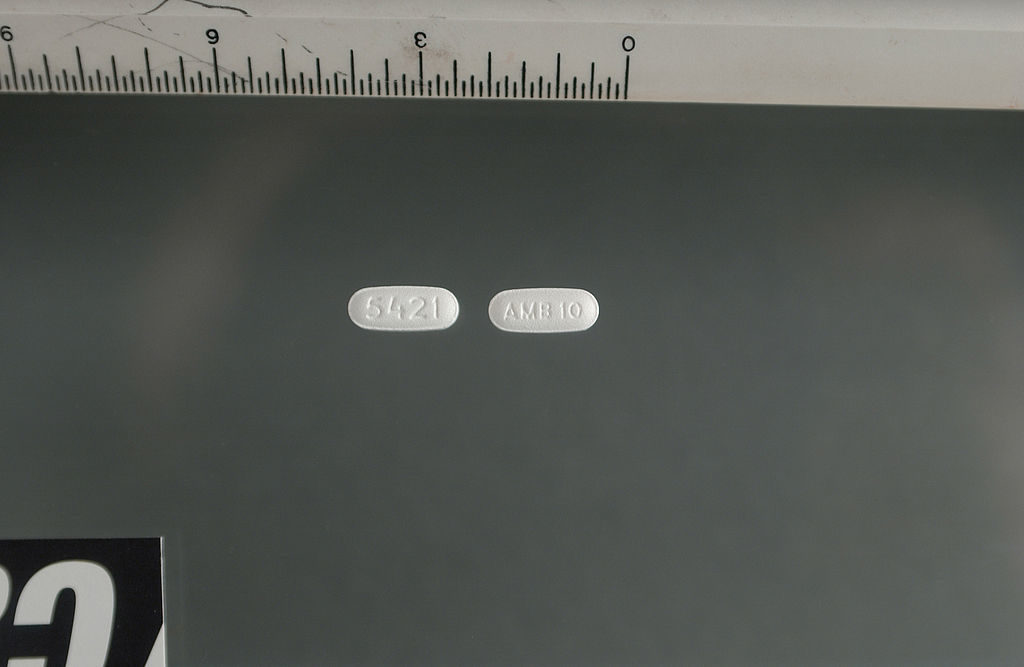[Note: To hear an audio version of this report, click the play button below]
A new study, published in JAMA Internal Medicine, investigates the patterns of zolpidem (brand name Ambien) use in adults. The article is written by Thomas Moore, senior scientist at the Institute for Safe Medication Practices, and Donald Mattison, chief medical officer and senior vice president of Risk Sciences International. Results of the study indicate that over three-quarters of zolpidem users are not following FDA recommendations to reduce risks of side effects and drug dependency.
“These data show that optimal safe use of zolpidem is uncommon. Although efficacy declines substantially after 14 days of continuous administration, most zolpidem patients reported sustained use, with an increased risk of dependence, given that zolpidem is a class IV controlled substance,” write the authors.

In 2013, zolpidem, a sedative often used for sleep, was the most commonly used prescription hypnotic drug in the US. Given the drug’s widespread use, adverse effects and drug risks are important to address. The FDA has made three recommendations when taking zolpidem to reduce risk of next-day impairment, behavior changes, and drug dependency: (1) use short-term because long-term use results in loss of efficacy, (2) use lower dosage (5mg) for women and people 65 years or older due to higher blood concentrations, and (3) limit combining with other central nervous system (CNS)-depressant drugs.
The researchers of the present study sought to compare patterns of zolpidem use to the FDA’s recommendations in the US adult population. They used data from the 2015 US Medical Expenditure Panel Survey, with a sample of 35,427 people, to estimate national prescription patterns.
Results suggest that 3.8 million adults in the US had at least one prescription of zolpidem in 2015. Women are almost twice as likely as men to take zolpidem. Sixty-four percent of adults age 65 or older and 68% of women were taking higher doses of zolpidem, despite FDA recommendations against this. Also, 68% of those taking zolpidem used it for over 60 days (median = 192 days). Among those taking zolpidem for a sustained period, 41% were also taking another CNS-depressant drug (26% combined zolpidem with an opioid).
The researchers summarize, “Overall, 77.4% (95% CI, 70.5%-84.3%) were not observing 2 or more recommendations to reduce risk.”
These findings are especially concerning since zolpidem use results in more emergency department visits due to adverse effects than any other psychotropic drug. The findings also suggest women are at higher risk for adverse effects, given their higher rates of zolpidem use and that women’s bodies take longer to clear the drug from their system, resulting in 45% higher blood concentrations. The researchers call for more efforts to reduce risks of zolpidem use. They conclude:
“This study of zolpidem shows that there are many opportunities to reduce the risks of next-day impairment, abnormal behavior changes, and dependence.”
****
Moore, T. J., & Mattison, D. R. (2018). Assessment of patterns of potentially unsafe use of zolpidem. JAMA Internal Medicine. Advance online publication. doi:10.1001/jamainternmed.2018.3031 (Link)














There is no safe use of this drug – male or female – other than not to take it in the first place. People who are detained in a MH unit have no choice if a psychiatrist forces this drug. This is a major human rights abuse – The withdrawal akathisia is the same as benzodiazepine withdrawal: horrific and deadly. Taken longer term dementia awaits you.
Report comment
I remember this stuff. This is a drug that promotes fugues and a kind of false awareness in which you do all sorts of things while actually asleep. I always wanted to go to a doctor’s office, saying I needed a scrip because I was driving cross-country to the Pacific coast, and gradually, in our conversation, leaking to the Man of Medicine that I wanted the drug because I planned on driving across the country while asleep.
Report comment
Interesting.
I was prescribed this drug a few years ago for severe insomnia. I think I only took it three times because it made no difference to my inability to sleep. What I remember most is the bruises sustained getting from the living room to the bedroom. I couldn’t seem to get through a single door on the way without hitting the side and it’s not like there isn’t a lot of clearance on either side to get through a door. I couldn’t figure out afterwards how it was possible to cause so many bruises trying to walk to another room.
Once I finally got in bed I was awake but in the strangest state of restless confusion all night.
I’m very glad to have thrown the bottle away, and that I was never coerced to take them.
Report comment
This is very helpful to know, thank you. Mu insomnia has been very bad lately and I have been exploring potential sleep aids. I also have rather poor balance. Given your report, I suspect this drug would do me far more harm than good—I can end up bruised like on a given day that without any drug to make my balance even more precarious. I will be sure to avoid Ambien and similar drugs.
Report comment
So called natural sleep aids like Nytol and many others contain valerian. Valerian blocks – not just inhibits – most drug metabolising enzymes. So if you are on any other drugs – especially psych – and take such ‘natural’ sleep aids watch out, akathisia is horrific. And it is highly unlikely to be diagnosed by any doctor other than severe mental illness anxiety/depression and including psychosis. I believe this is a far more common rout into deeper MH hell.
Report comment
Ambien is totally useless. I was forced to take it while held in the “hospital” because I couldn’t sleep due to the noise made by the night staff. It did absolutely nothing to help my sleeplessness but I was still forced to take it even though I didn’t want it. It did cause me to feel restless. I agree that it’s as bad and as dangerous as benzos.
Report comment
Is zopiclone similar in its dangers and ill effects? I have been on 10-15 mg for 2 years. Sleep feels unnatural and I do not dream, the result of brain damage from ECT.
Report comment
Don’t you just love the language they use?
“Results of the study indicate that over three-quarters of zolpidem users are not following FDA recommendations to reduce risks of side effects and drug dependency.”
Those irresponsible users! Don’t they know they’re supposed to follow FDA guidelines, even if the prescriber doesn’t?
Report comment
Those unethical bastards! They are giving the prescribers and the drug companies a bad name!!!
Report comment
I was about to point out the same thing! Those damn users following doctors orders! How dare they!
It was far easier for my psych doctor to prescribe ambien for 9 years than to refer me for treatment of my sleep apnea. After 9 years of continuous use, I haven’t taken a single ambien since the first night I received my cpap machine in 2011. Amazing what happens when you get actual medical care instead of psychiatric fraud. Amazingly, my sleep study showed I was at risk of sudden cardiac death in my sleep because my blood O2 level was dipping below 80% during my apneas. Being on ambien (and Xanax and klonopin and a half dozen or more other drugs at night – including opioids and flexeril) increased my risk of death substantially. My psychiatrist literally could have killed me with the cocktail of meds I was on combined with the effects of untreated sleep apnea. You think my doctor ever acknowledged her mistake? Ha!
Report comment
In fact, I think this is a really huge issue. Why is this being framed in such a way that the patient is blamed for incorrect usage? Is there evidence that the patient is using zolpidem (ambien) long term without their provider’s knowledge or prescription? If not, why do the subject and byline not more accurately reflect that providers are prescribing zolpidem in a manner inconsistent with the research and FDA recommendation?
Seriously, MIA, please stop being complicit with the blame the patient model and change the byline to reflect the reality that doctors are inappropriately prescribing these drugs for long term continuous use and that patients following doctors orders are inadvertently harmed by such. You might even send a letter to JAMA asking them to do the same.
Report comment
Here’s a helpful start:
Old headline:
Unsafe use of zolpidem sleep drug common.
New headline:
Unsafe prescribing of zolpidem sleep drug common.
Old byline:
Three out of four users of the sedative, zolpidem (brand name Ambien), do not follow FDA recommendations to reduce risk.
New byline:
Three out of four patients prescribed the sedative sleep drug zolpidem (brand name Ambien) in a manner inconsistent with FDA guidelines.
Fixed it. You’re welcome.
Report comment